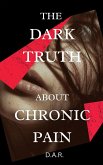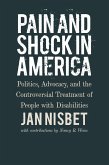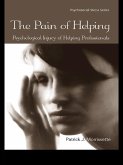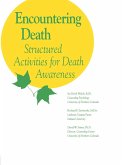What is persistent pain? How do we communicate pain, not only in words but in visual images and gesture? How do we respond to the pain of another, and can we do it better? Can explaining how pain works help us handle it? This unique compilation of voices addresses these and bigger questions.
Defined as having lasted over three months, persistent pain changes the brain and nervous system so pain no longer warns of danger: it seems to be a fault in the system. It is a major cause of disability globally, but it remains difficult to communicate, a problem both to those with pain and those who try to help. Language struggles to bridge the gap, and it raises ethical challenges in its management unlike those of other common conditions.
Encountering Pain shares leading research into the potential value of visual images and non-verbal forms of communication as means of improving clinician-patient interaction. It is divided into four sections: hearing, seeing, speaking, and a final series of contributions on the future for persistent pain. The chapters are accompanied by vivid photographs co-created with those who live with pain.
The volume integrates the voices of leading scientists, academics and contemporary artists with poetry and poignant personal testimonies to provide a manual for understanding the meanings of pain, for healthcare professionals, pain patients, students, academics and artists. The voices and experiences of those living with pain are central, providing tools for discussion and future research, shifting register between creative, academic and personal contributions from diverse cultures and weaving them together to offer new understanding, knowledge and hope.
Praise for Encountering Pain
'A thoughtful and thought-provoking text on the subject of chronic pain, and it makes a meaningful contribution to discourse in the medical humanities. Most importantly, it invites further research into strategies for integrating medicine and the arts for the benefit of patients and clinicians alike.'
Medical Humanities (BMJ, IME) blog
'An interesting and eclectic mix of contributors from experience, science, arts and historical perspectives...this is an excellent resource'
Pain News
'This volume could be said to be a guide to conducting successful interdisciplinary research, revealing the remarkable results that can be achieved when those with lived experience are held at the heart of research.'
The Polyphony
'From a remarkable variety of disciplinary and cultural perspectives - from medicine and therapy to the creative arts and philosophy - this inspirational and eye-opening collection succeeds in articulating the mysterious and overwhelmingly complex sensory experience that is pain. Pain, the encounters in this volume suggest, defies definition; it is subjective and unpredictable; it can be phantom or real. Through its radical and engaging use of testimonies, Encountering Pain never shies away from metaphor and the unfounded fear, that the allegorising of pain will dilute its reality. Examined through a multitude of verbal and non-verbal paradigms, contributors discuss the physicality of pain and its political, administrative and medical regulation; the body's trauma and expressiveness; how pain is transmuted into art. The communication of something that resists being expressed straightforwardly in verbal form metamorphoses, as you read this extraordinarily rich and innovative volume, into a metaphor for life itself, for who we are, how we become social beings by developing empathy and respect for the pain of others, for how we develop and then question through these interactions our sense of identity.'
Professor Stella Bruzzi, Dean, Faculty of Arts and Humanities, UCL
'This book is the result of a collaborative, multi-disciplinary investigation into the experience of pain and how it might be understood and ameliorated. Deborah Padfield's photographs, made in collaboration with pain sufferers, reveal how an otherwise debilitating, highly subjective and individualising experience might become a topic for intersubjective communication. Through her innovative and experimental photography we learn that the photographic image can potentially play a role in the medical field by addressing 'what is felt' by the patient alongside the usual indexical medical documentation of 'what is there'. In so doing photography may provide a means of sharing perceptual experience and stimulating doctor-patient discussion around the emotional interplay of body and mind. - Gina Glover, a photographic artist working in the fields of health, genetics and science.www.ginaglover.com
'This is a majestic volume. Visually striking, intellectually challenging, and experientially transformative, this book promises to change how everyone encounters pain.'Dr Rob Boddice, Freie Universität Berlin
'Deborah Padfield's book, Perceptions of Pain (2003), introduced a ground-breaking strategy through which photography became an effective tool to interpret pain - an aspect of human experience that can, so often, appear inexplicable. The powerful images in this book are further evidence of the collaborative strength of photography and its special ability to give voice to those who are excluded.'
Dewi Lewis, Publisher
A work that brings photographic, figurative and poetic images of chronic pain to the clinic and demonstrates how visual, communicative frameworks can re-voice experiences and diagnoses of pain. This major, deeply reflective collection of papers represents a turning-point in defining the multifaceted importance of painscapes in clinical, therapeutic, and humanistic advocacy work. It firmly situates the arts and humanities, alongside the sciences, in responding to the pressing need for new strategies to alleviate chronic pain.'
Prof Brian Hurwitz, Emeritus Professor of Medicine and the Arts, King's College London
'Pain and its ever-increasing numbers of sufferers inhabit a kind of night world isolated from the "normal" day world. 'A bandage hides the place where each is living', W.H. Auden once wrote, while we, the healthy, 'stand elsewhere'.
Encountering Pain is an attempt to narrow this rift by making sure sufferers are heard, seen, and able to speak again - so that they might be better understood. Padfield and Zakrzewska have assembled an impressive team of patients, healthcare providers, artists and academicians, all determined to make pain more visible and communicable. The authors compellingly demonstrate that language -- whether in the form of words, gestures or images - is a necessary first step towards alleviating pain. That it can often be as powerful as medicine. '
Dr David Biro, Associate Clinical Professor of Dermatology at SUNY Health Science Center @ Brooklyn and author of The Language of Pain: Finding Words, Compassion, and Relief.
Defined as having lasted over three months, persistent pain changes the brain and nervous system so pain no longer warns of danger: it seems to be a fault in the system. It is a major cause of disability globally, but it remains difficult to communicate, a problem both to those with pain and those who try to help. Language struggles to bridge the gap, and it raises ethical challenges in its management unlike those of other common conditions.
Encountering Pain shares leading research into the potential value of visual images and non-verbal forms of communication as means of improving clinician-patient interaction. It is divided into four sections: hearing, seeing, speaking, and a final series of contributions on the future for persistent pain. The chapters are accompanied by vivid photographs co-created with those who live with pain.
The volume integrates the voices of leading scientists, academics and contemporary artists with poetry and poignant personal testimonies to provide a manual for understanding the meanings of pain, for healthcare professionals, pain patients, students, academics and artists. The voices and experiences of those living with pain are central, providing tools for discussion and future research, shifting register between creative, academic and personal contributions from diverse cultures and weaving them together to offer new understanding, knowledge and hope.
Praise for Encountering Pain
'A thoughtful and thought-provoking text on the subject of chronic pain, and it makes a meaningful contribution to discourse in the medical humanities. Most importantly, it invites further research into strategies for integrating medicine and the arts for the benefit of patients and clinicians alike.'
Medical Humanities (BMJ, IME) blog
'An interesting and eclectic mix of contributors from experience, science, arts and historical perspectives...this is an excellent resource'
Pain News
'This volume could be said to be a guide to conducting successful interdisciplinary research, revealing the remarkable results that can be achieved when those with lived experience are held at the heart of research.'
The Polyphony
'From a remarkable variety of disciplinary and cultural perspectives - from medicine and therapy to the creative arts and philosophy - this inspirational and eye-opening collection succeeds in articulating the mysterious and overwhelmingly complex sensory experience that is pain. Pain, the encounters in this volume suggest, defies definition; it is subjective and unpredictable; it can be phantom or real. Through its radical and engaging use of testimonies, Encountering Pain never shies away from metaphor and the unfounded fear, that the allegorising of pain will dilute its reality. Examined through a multitude of verbal and non-verbal paradigms, contributors discuss the physicality of pain and its political, administrative and medical regulation; the body's trauma and expressiveness; how pain is transmuted into art. The communication of something that resists being expressed straightforwardly in verbal form metamorphoses, as you read this extraordinarily rich and innovative volume, into a metaphor for life itself, for who we are, how we become social beings by developing empathy and respect for the pain of others, for how we develop and then question through these interactions our sense of identity.'
Professor Stella Bruzzi, Dean, Faculty of Arts and Humanities, UCL
'This book is the result of a collaborative, multi-disciplinary investigation into the experience of pain and how it might be understood and ameliorated. Deborah Padfield's photographs, made in collaboration with pain sufferers, reveal how an otherwise debilitating, highly subjective and individualising experience might become a topic for intersubjective communication. Through her innovative and experimental photography we learn that the photographic image can potentially play a role in the medical field by addressing 'what is felt' by the patient alongside the usual indexical medical documentation of 'what is there'. In so doing photography may provide a means of sharing perceptual experience and stimulating doctor-patient discussion around the emotional interplay of body and mind. - Gina Glover, a photographic artist working in the fields of health, genetics and science.www.ginaglover.com
'This is a majestic volume. Visually striking, intellectually challenging, and experientially transformative, this book promises to change how everyone encounters pain.'Dr Rob Boddice, Freie Universität Berlin
'Deborah Padfield's book, Perceptions of Pain (2003), introduced a ground-breaking strategy through which photography became an effective tool to interpret pain - an aspect of human experience that can, so often, appear inexplicable. The powerful images in this book are further evidence of the collaborative strength of photography and its special ability to give voice to those who are excluded.'
Dewi Lewis, Publisher
A work that brings photographic, figurative and poetic images of chronic pain to the clinic and demonstrates how visual, communicative frameworks can re-voice experiences and diagnoses of pain. This major, deeply reflective collection of papers represents a turning-point in defining the multifaceted importance of painscapes in clinical, therapeutic, and humanistic advocacy work. It firmly situates the arts and humanities, alongside the sciences, in responding to the pressing need for new strategies to alleviate chronic pain.'
Prof Brian Hurwitz, Emeritus Professor of Medicine and the Arts, King's College London
'Pain and its ever-increasing numbers of sufferers inhabit a kind of night world isolated from the "normal" day world. 'A bandage hides the place where each is living', W.H. Auden once wrote, while we, the healthy, 'stand elsewhere'.
Encountering Pain is an attempt to narrow this rift by making sure sufferers are heard, seen, and able to speak again - so that they might be better understood. Padfield and Zakrzewska have assembled an impressive team of patients, healthcare providers, artists and academicians, all determined to make pain more visible and communicable. The authors compellingly demonstrate that language -- whether in the form of words, gestures or images - is a necessary first step towards alleviating pain. That it can often be as powerful as medicine. '
Dr David Biro, Associate Clinical Professor of Dermatology at SUNY Health Science Center @ Brooklyn and author of The Language of Pain: Finding Words, Compassion, and Relief.
Dieser Download kann aus rechtlichen Gründen nur mit Rechnungsadresse in A, D ausgeliefert werden.









